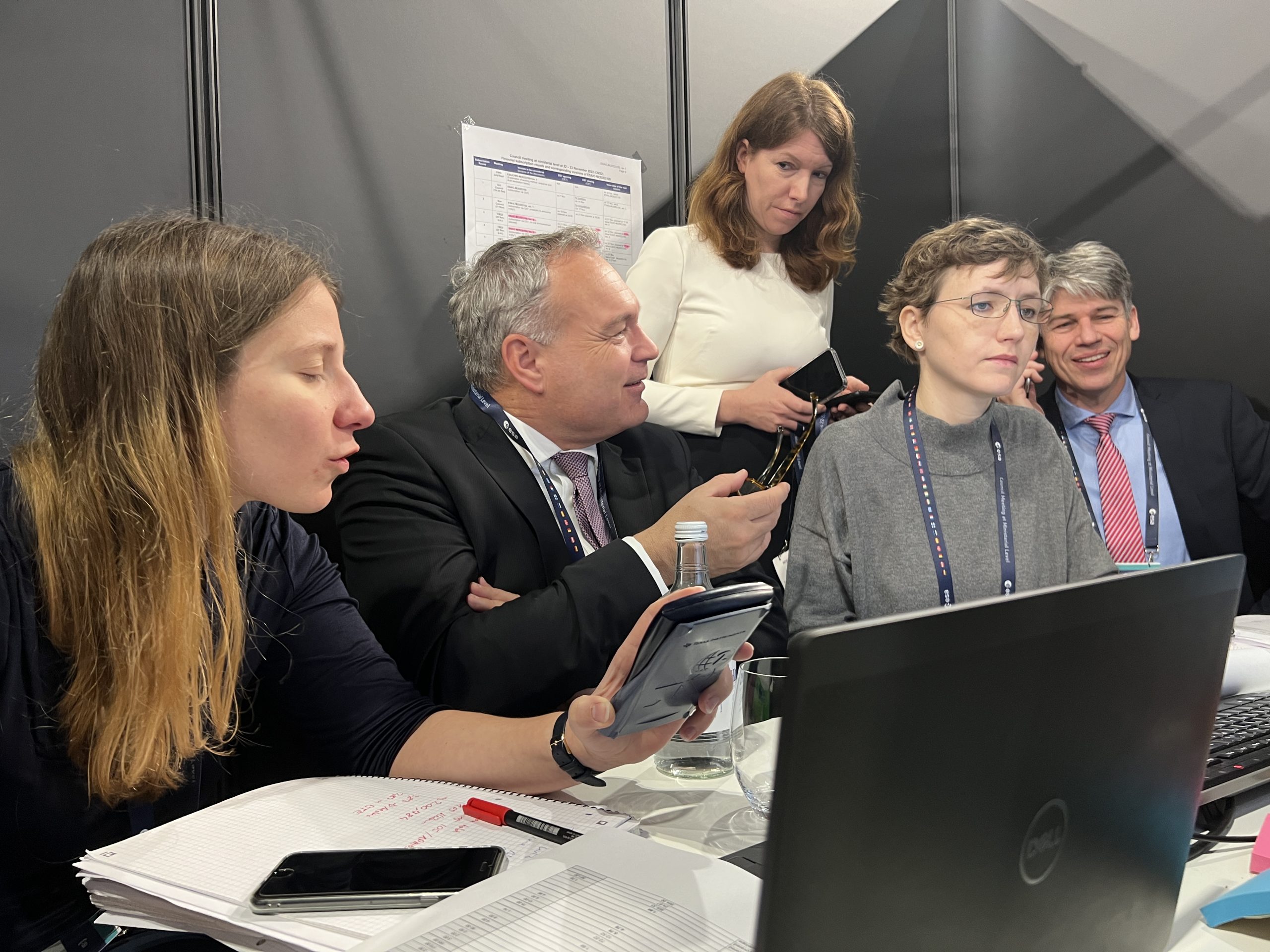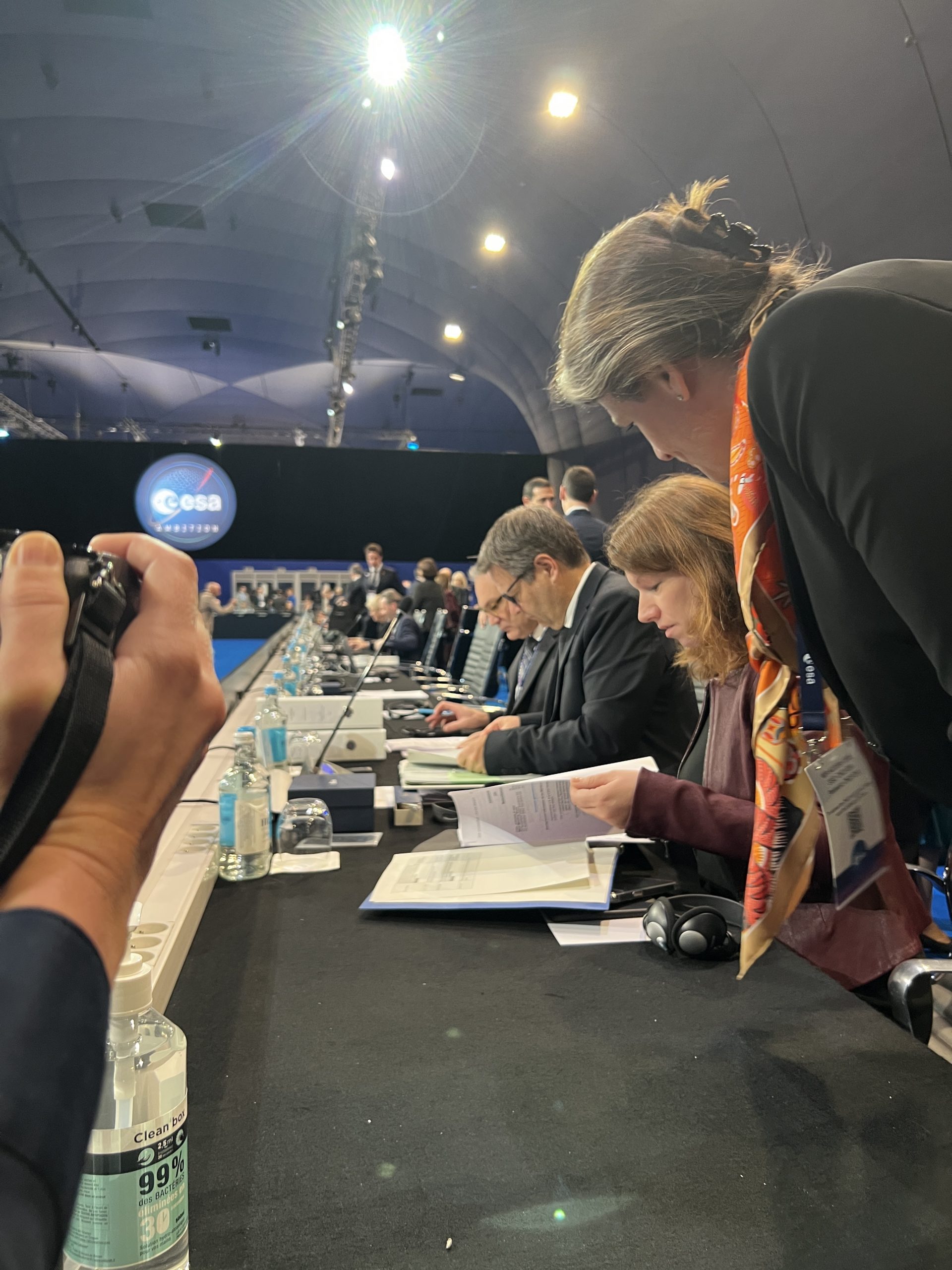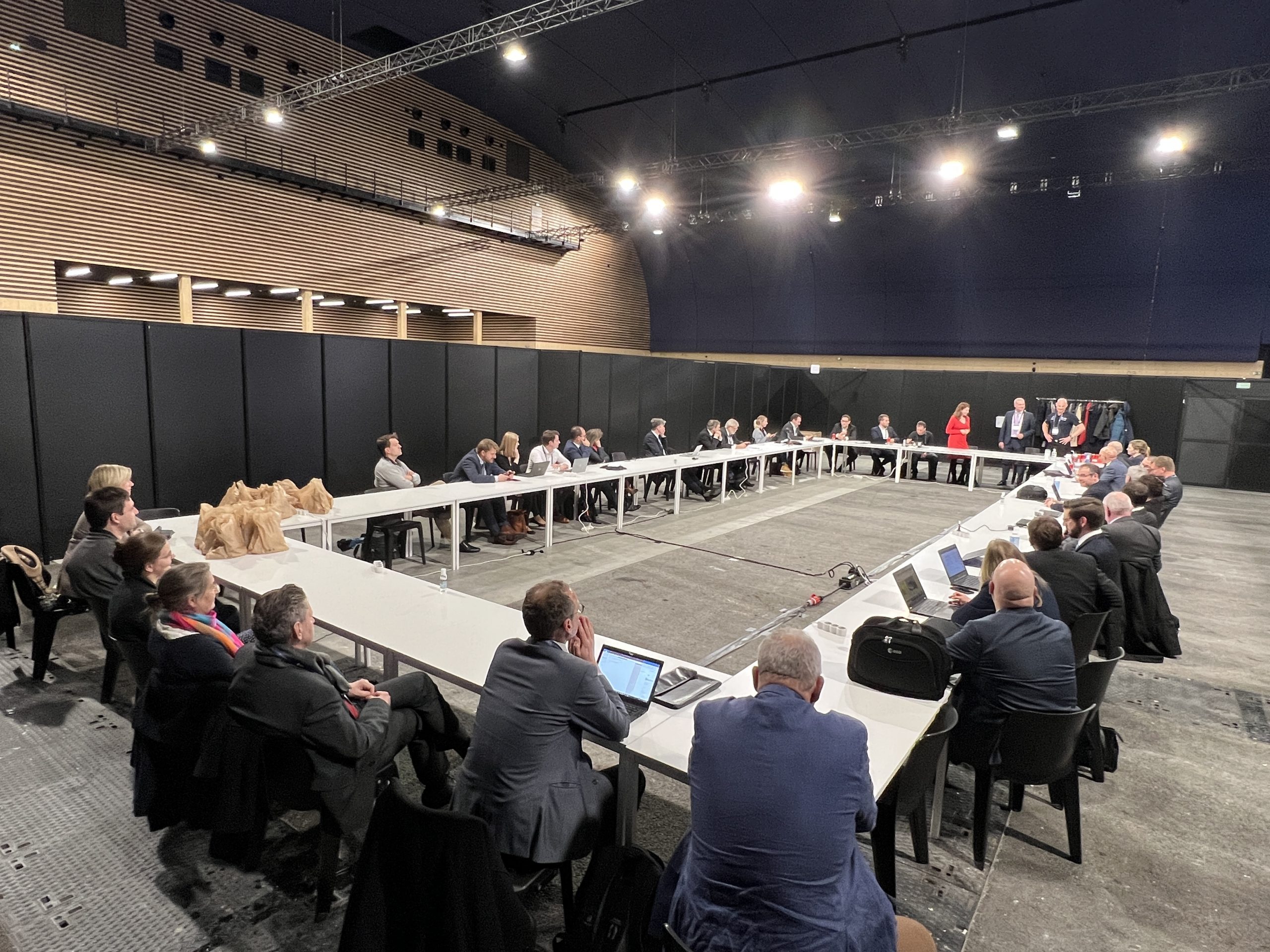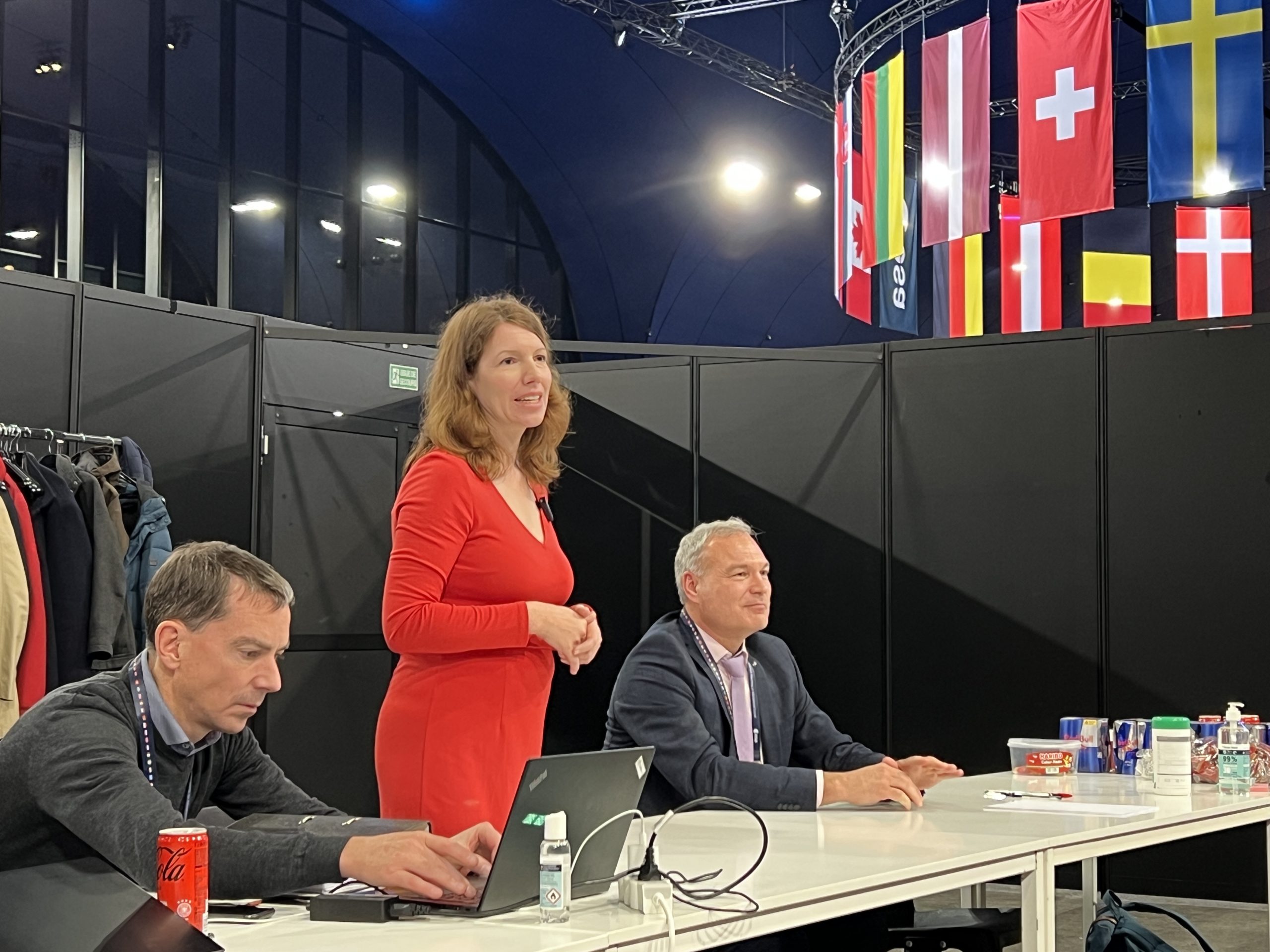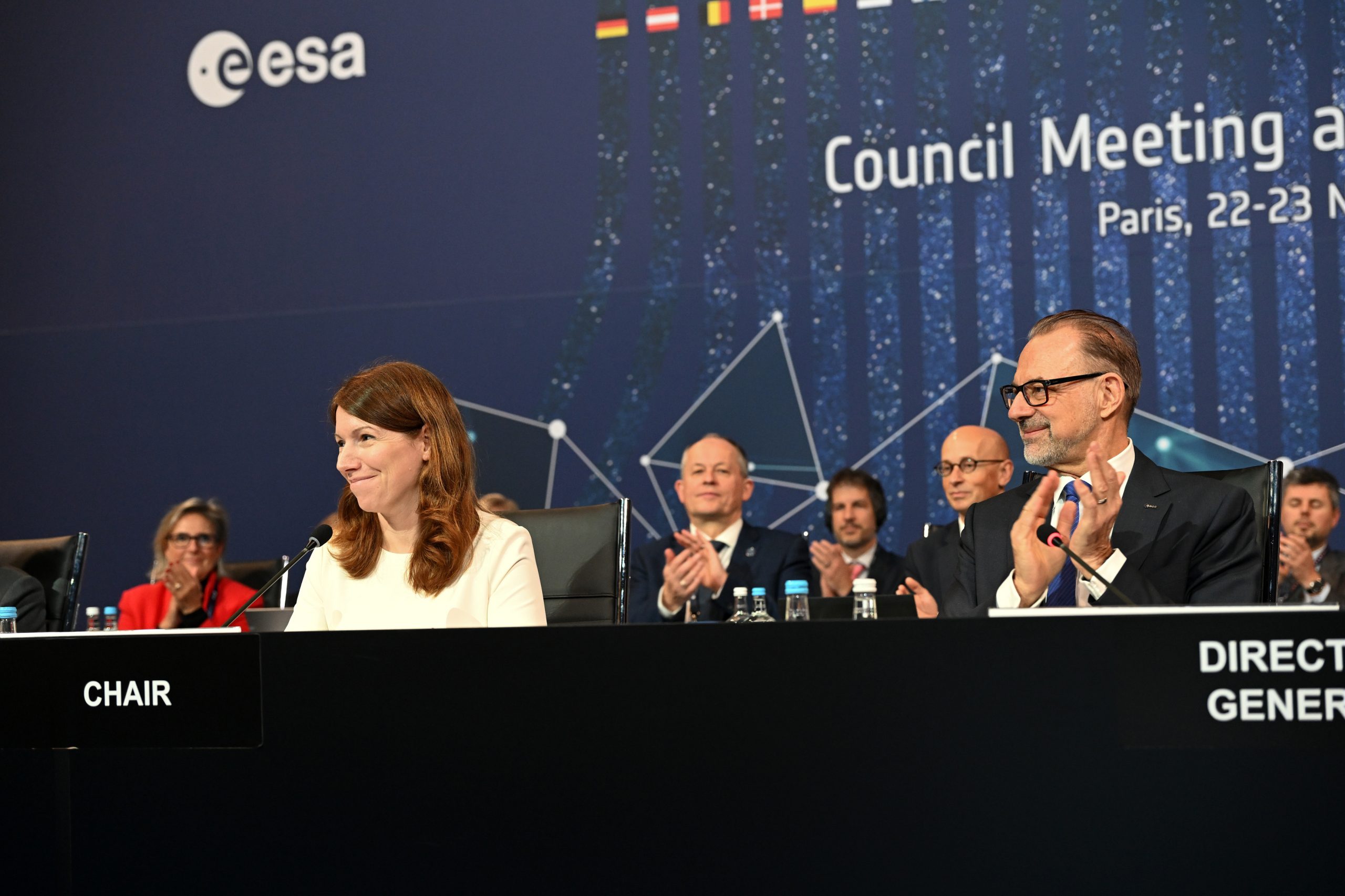
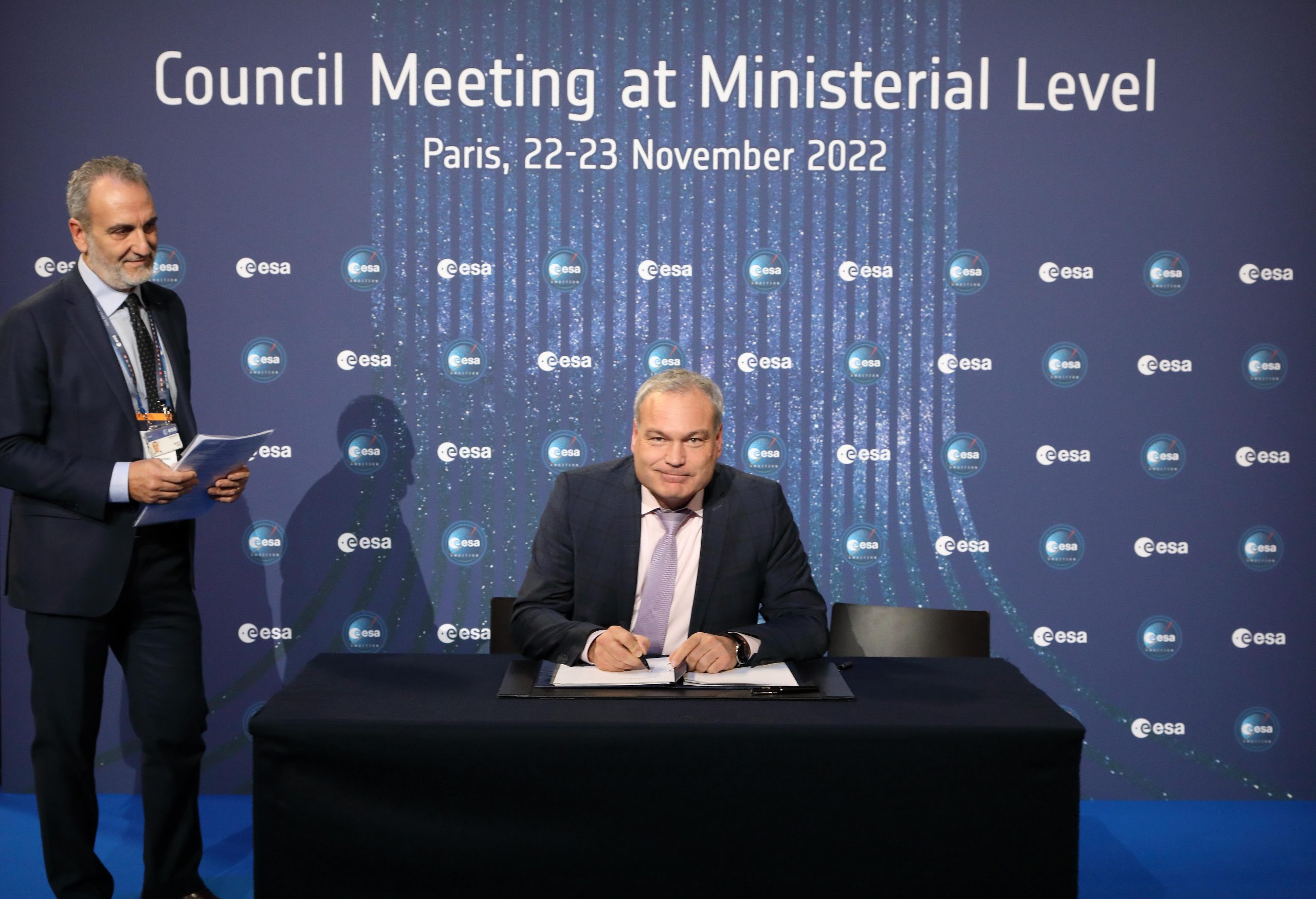
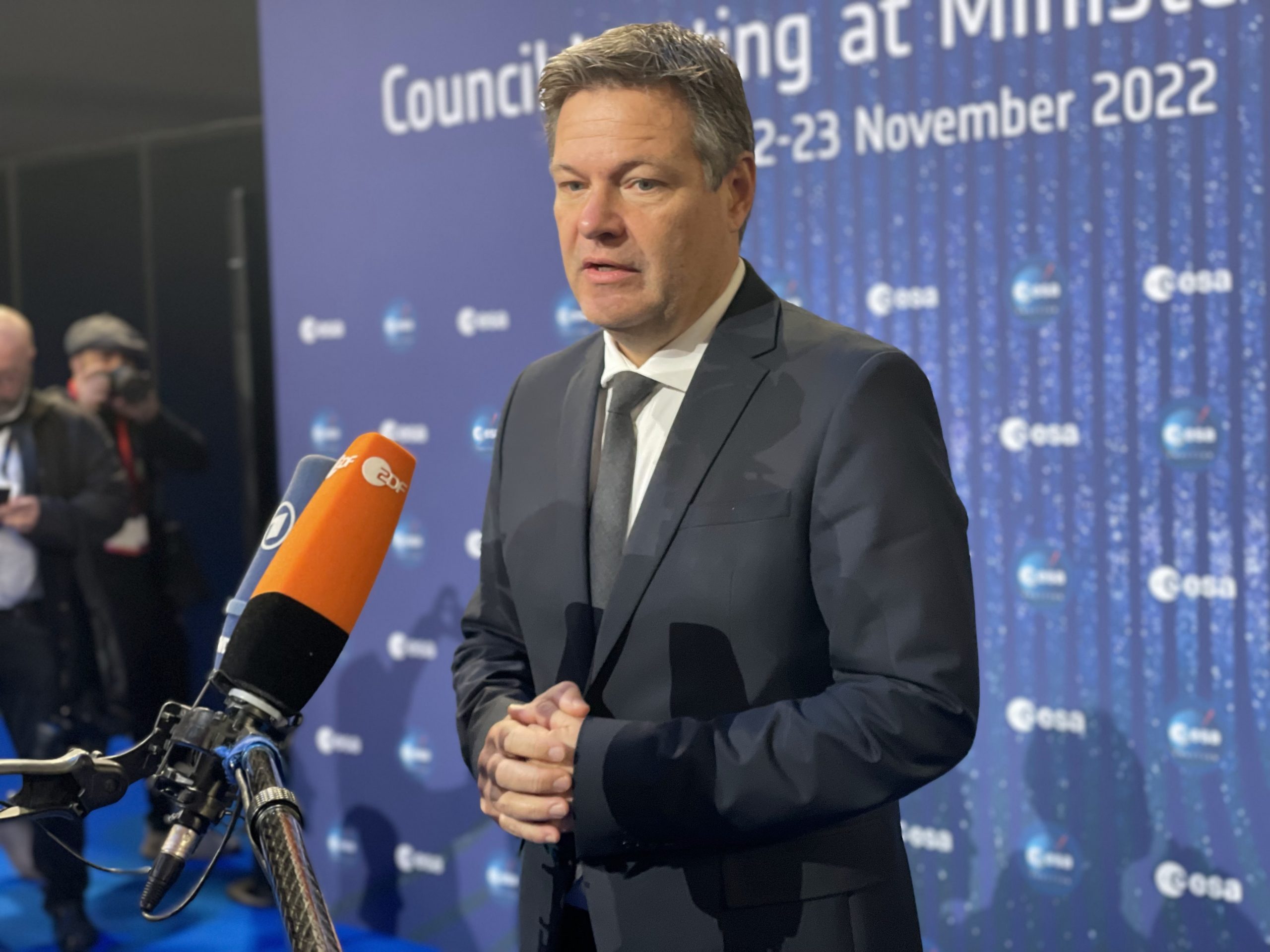
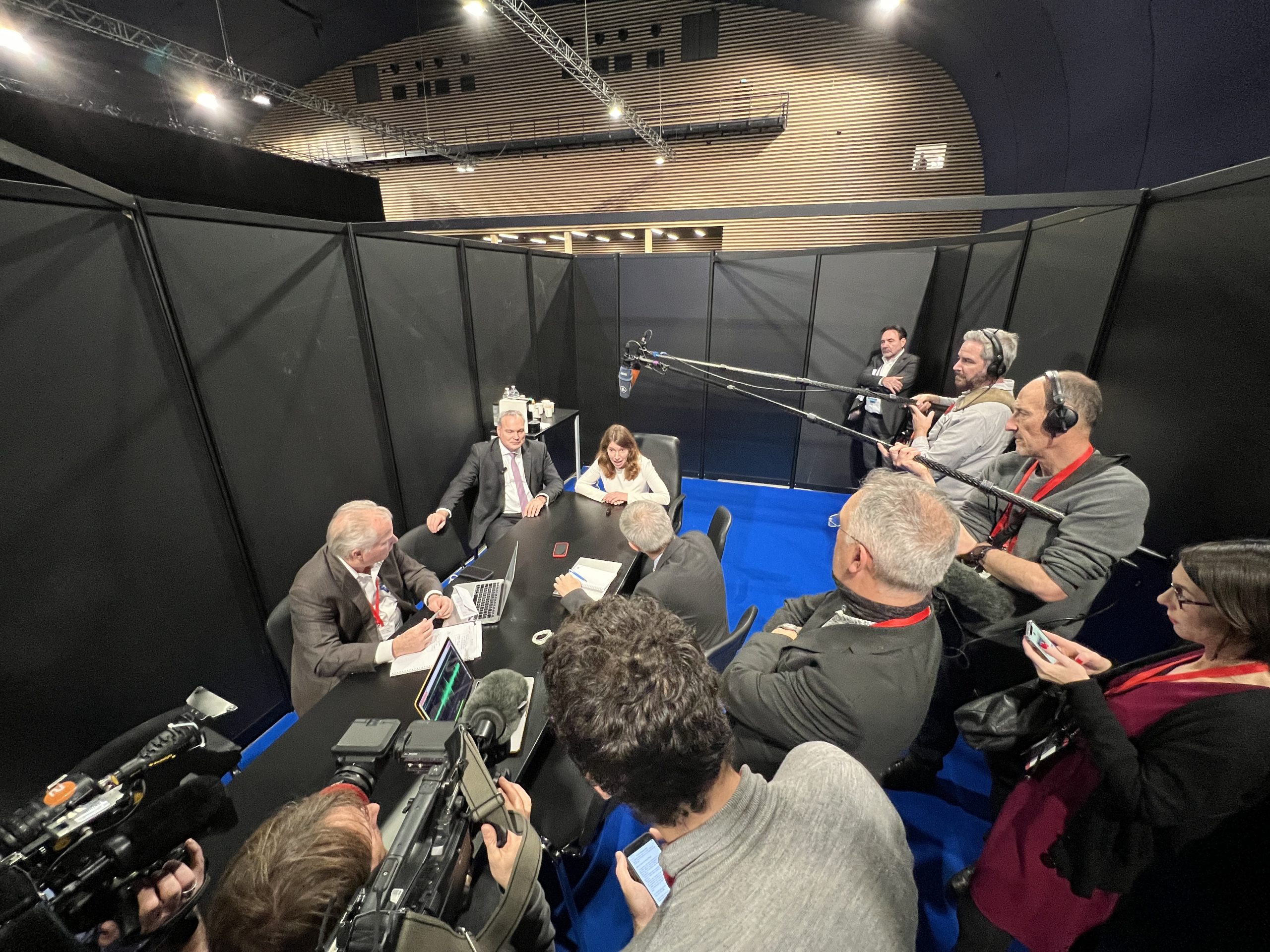
Dr Christmann, this was your first time at an ESA Council Meeting at Ministerial Level, and you were immediately tasked with chairing the conference for Germany. How important is that and what moment or detail from CM22 will you remember the most?
: It was an honour for me to take over the baton of the ESA Council Presidency from France together with our Minister, Robert Habeck. I experienced the ESA Council Meeting at Ministerial Level as a very special expression of close European cooperation in space. The atmosphere was very friendly, and everyone wanted to work together to achieve the best results for a successful ESA. There was a great team spirit, both among the Member States and within our own DLR delegation and the Ministry. Of course, there was also an air of excitement. The final round of signatures, in which the great commitment of the Member States was once again clear, will certainly remain in my memory, as will the great ambience made possible by our French hosts.
Mr Pelzer, how did you personally experience your second ESA Council Meeting at Ministerial Level? What was different in Paris than in Seville?
: The ESA Ministerial Council in Paris was different from its predecessor in Seville in 2019 in many ways. For one thing, following the last federal election, we have a newly established Federal Ministry for Economic Affairs, that is now also responsible for Climate Action within the Federal Government. With Anna Christmann, we have a new Federal Coordinator of German Aerospace Policy, who, alternating with Federal Minister Robert Habeck, has taken over the presidency in Paris and thus also the three-year Council presidency for Germany in a very confident manner. I am very pleased that Minister Habeck was personally present at a Ministerial Council for the first time in many years. This illustrates the growing importance that the Federal Government attaches to spaceflight. Secondly, this ‘CM’ in Paris was the first to take place under the shadow of a war in Europe. The Russian attack on Ukraine and its consequences also influenced the decisions in Paris. The increase in funding to 16.9 billion euros – the highest total subscription sum in ESA history – was imperative in view of the circumstances and is at the same time a noteworthy success. With its contribution of more than 3.5 billion euros – also the highest in the history of the German Council of Ministers – Germany played a major part in this.
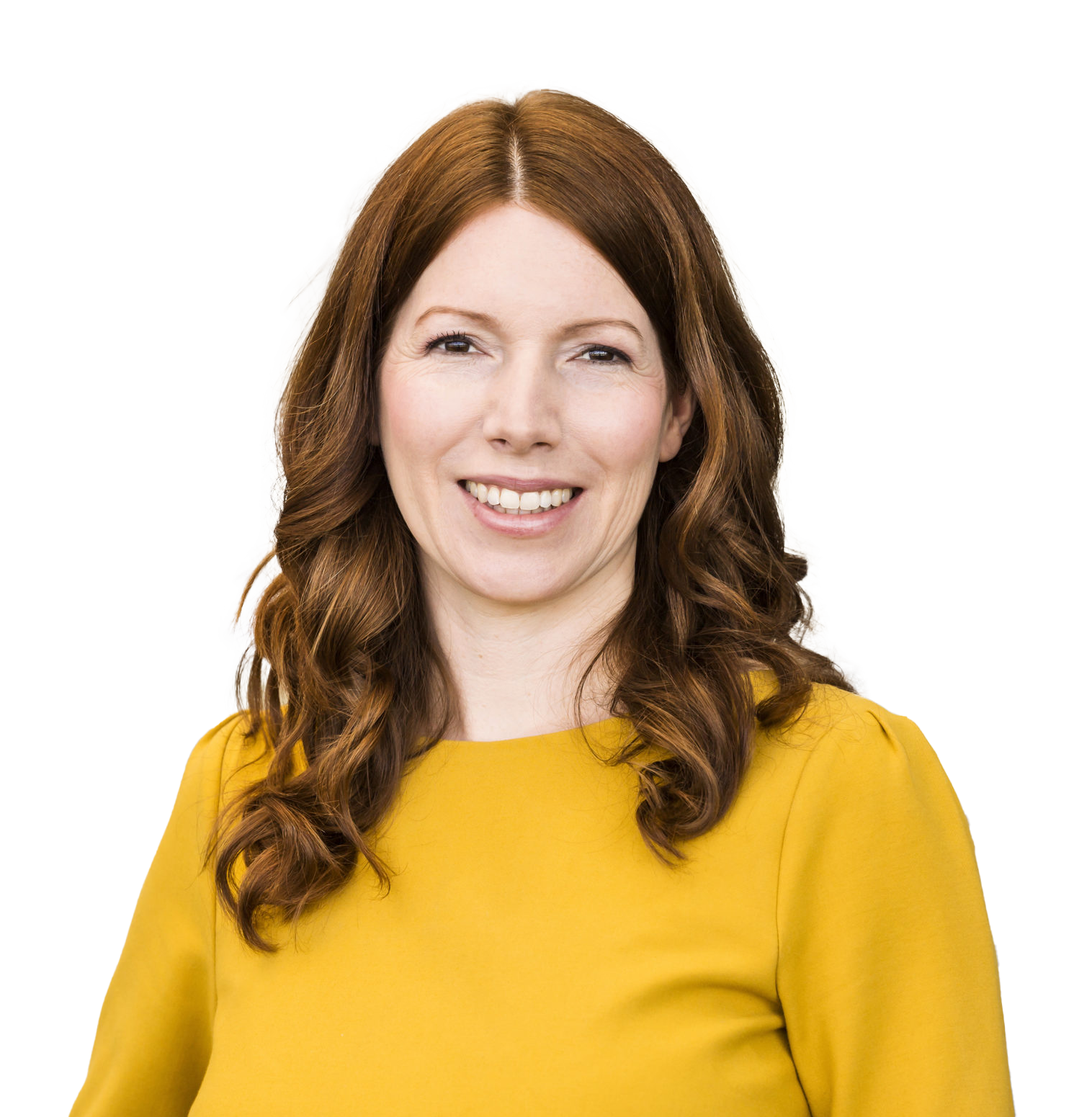
Dr Anna Christmann
Federal Government Coordinator of German Aerospace PolicyDr Christmann, Germany has increased the space budget allocated to ESA by even more than it did at Space19+ and is thus once again ESA's strongest partner – what does that mean politically and economically?
: As we all know, we are currently facing numerous parallel crises: the climate crisis, the Russian war of aggression against Ukraine, an associated energy crisis and high inflation. Therefore, I am all the more pleased that we were able to make financial commitments at such a high level in Paris. The significant German contribution to CM22 is a clear commitment by the Federal Government to the importance of spaceflight. For us, space represents one of the most important technological fields for the future. Our consistently high investments promote Germany as a location for advanced technology and, as the ESA Member State with the largest contribution, we are ensuring that we can continue to actively shape spaceflight in the future together with our partners. But it is not only the amount of money that is important for making European spaceflight fit for the future, it is also about how it is spent. We are committed to ensuring that small and medium-sized enterprises, especially start-ups, have easier access to ESA programmes. Because these companies are often the drivers of innovation in their field. We have observed this around the world in recent years and Europe has some catching up to do here.
Mr Pelzer, the CM in Paris was not merely a symbolic meeting of ministers. Significant political decisions were also taken. Which ones?
: Exactly. Some extremely important political decisions were made in Paris. For example, the ministers decided that Europe will send a satellite to the lunar surface as part of a European-led mission for the first time. Another particular success from the German perspective is the opening up of the transport of ESA payloads for privately financed European launchers. This decision will have a lasting impact on European spaceflight and also opens up the largest European payload market for the German microlauncher companies that have already proven successful. With this decision, an ESA regulation from 2005 was repealed, according to which ESA payloads are only allowed to fly with the large Ariane and Vega launchers. By opening this large institutional market, it is precisely the young, highly innovative start-ups in the microlauncher sector that are given excellent prospects. Another important decision for Germany was that Lampoldshausen, as a site for rocket stage tests and component production, has now become part of the strategic ESA infrastructure and that the coming generations of Vinci engines for the Ariane launch vehicles can also be manufactured there.
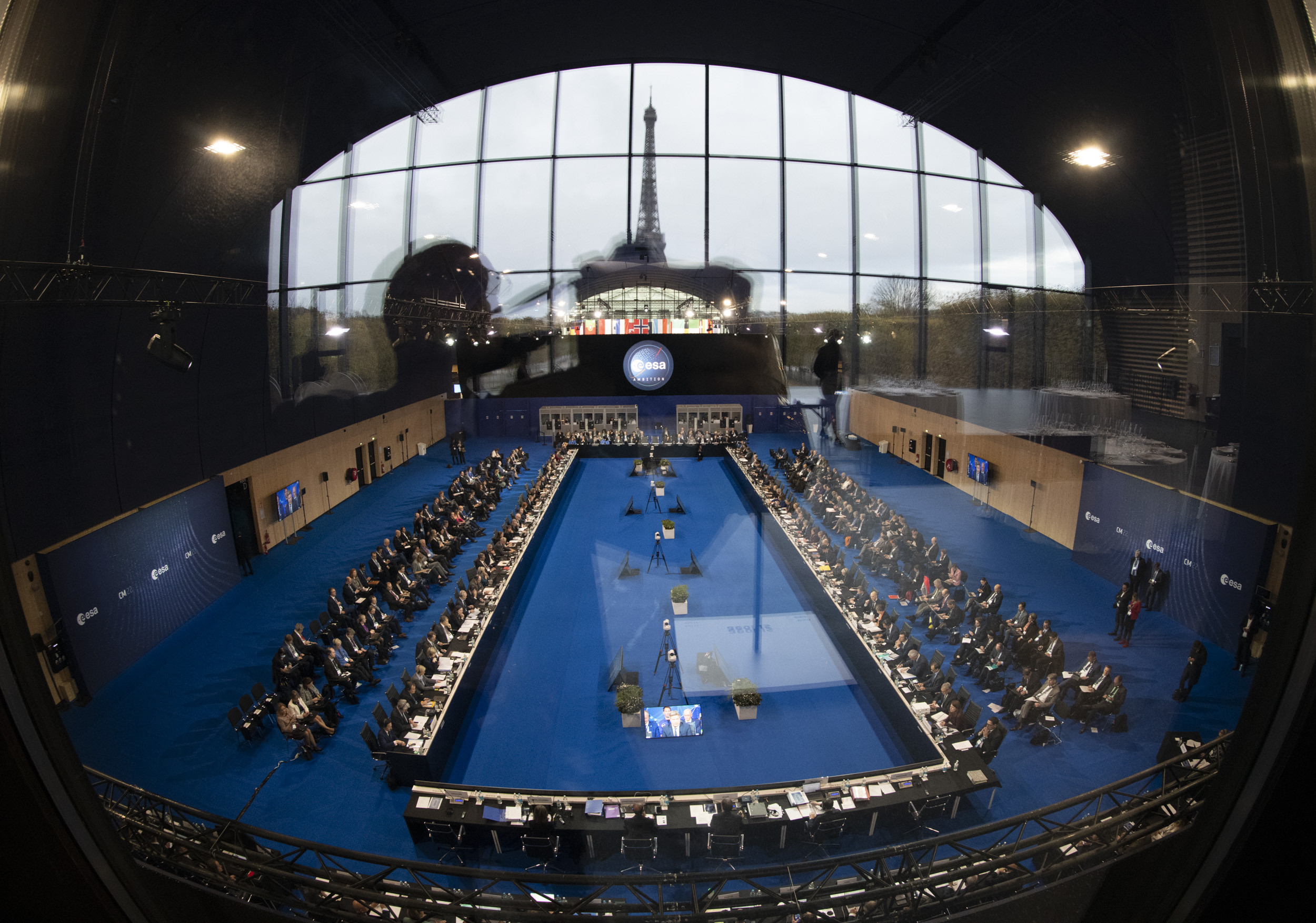
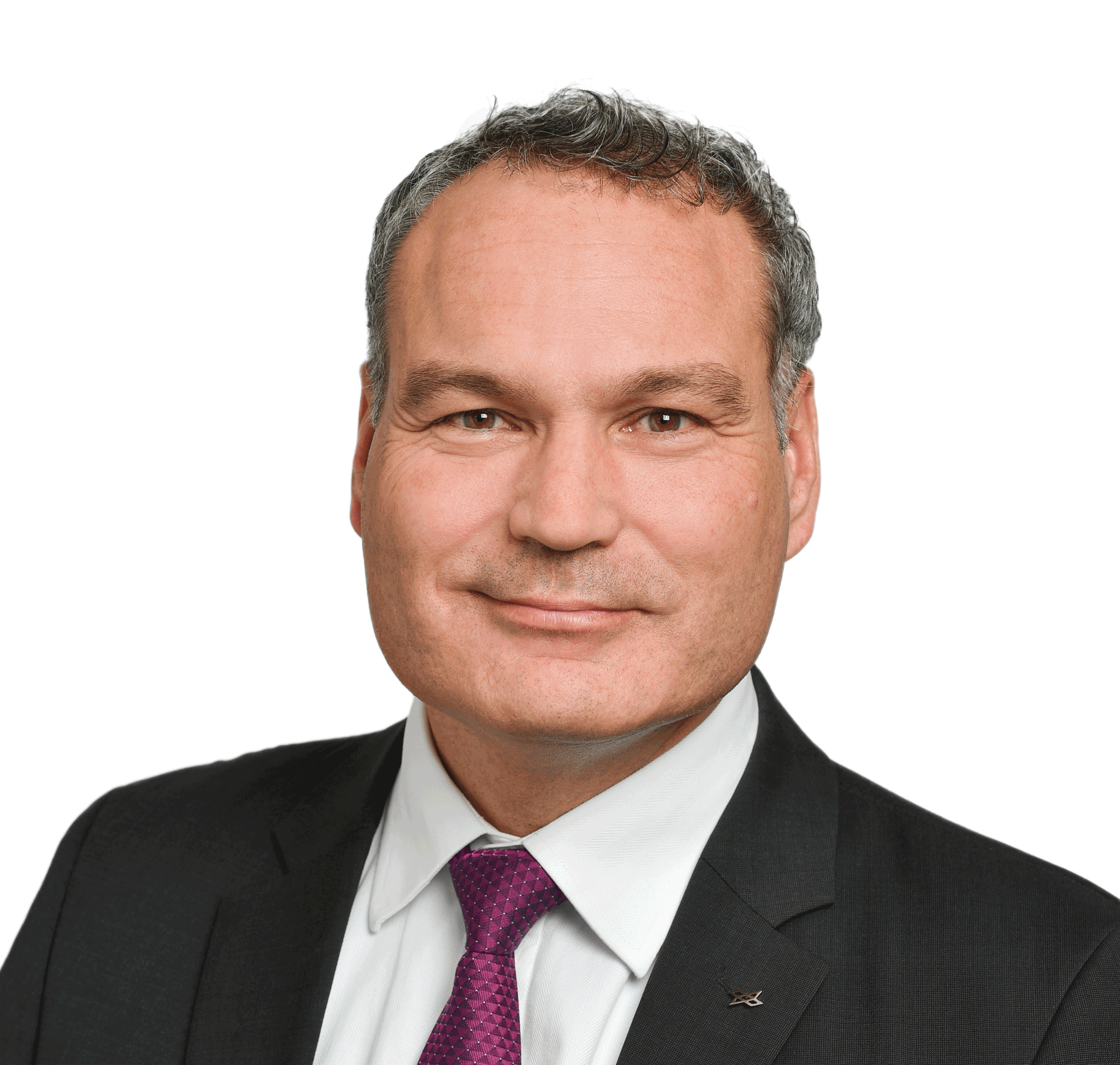
Dr Walther Pelzer
Member of the DLR Executive Board and Director General of the German Space Agency at DLRDr Christmann, as of this legislative period, the Federal Ministry of Economic Affairs has also been responsible for Climate Action within the Federal Government. How does that affect ESA's decisions?
: Spaceflight is crucial for climate protection. Only our ‘eyes’ in space have enabled us to fully comprehend what we humans are doing to our planet. Services provided from space also give us the opportunity to limit the impacts of this climate crisis. As the Ministry for Climate Action, it was therefore important to us that these programmes receive major support at CM22 in Paris. Of course, this applies in particular to Earth observation. Here, new environmental satellites will be developed within the FutureEO and Copernicus flagship programmes. We are also investing in the Climate Space programme, which, in combination with German missions such as EnMAP, GRACE and later MERLIN, will play an important role in the reporting requirements of the Paris Climate Agreement. I am also particularly pleased that we were able to participate in the Digital Twin Earth programme. Here, existing and future data will be combined to further improve our understanding of the Earth system. This will also strengthen the downstream sector, as there is much more that can be done using data acquired in space than is done already today.
Mr Pelzer, which ESA missions are particularly important for Germany in the coming years?
: Many. Anna Christmann has just mentioned the Earth observation missions. I would like to add a few others. In exploration, Europe wants to open up the Moon to robotic exploration with the European Large Logistics Lander (EL3) mission under German-Italian leadership and build up its own capacities in lunar exploration. With the contracts for the European Service Modules ESM 7 to 9, Europe is supporting NASA's Artemis programme and using German technology to help return the USA to the Moon. The award of the ESM contract is a great demonstration of NASA's confidence in our capabilities. The successful Artemis I mission is also an excellent demonstration of high-level engineering ‘made in Germany’. While we are on the subject of technology, I would also like to mention the new EU initiative ‘Secure Connectivity’. In the new ‘EU Secure Connectivity Programme’, ESA will carry out the development and demonstrations necessary for the European IRIS² constellation – EU-owned infrastructure. Germany played a decisive role in negotiating the EU regulation, so that German industry and especially SMEs and start-ups will also play a role here. The Federal Republic has subscribed to this ESA programme at a correspondingly high level. The C-STS programme, which was launched in Seville in 2019 and is strongly supported by Germany, is also a great success. Under the new name ‘BOOST!’, it supports increased competition in the launcher sector and was successfully continued in Paris. Thanks to our microlauncher competition, which the German Space Agency at DLR has been organising under this programme since 2020, the first German microlauncher will hopefully be launched this year, sending European small satellites from our National Payload Competition into space – an example of how intelligent dovetailing of national and ESA initiatives can lead to success.
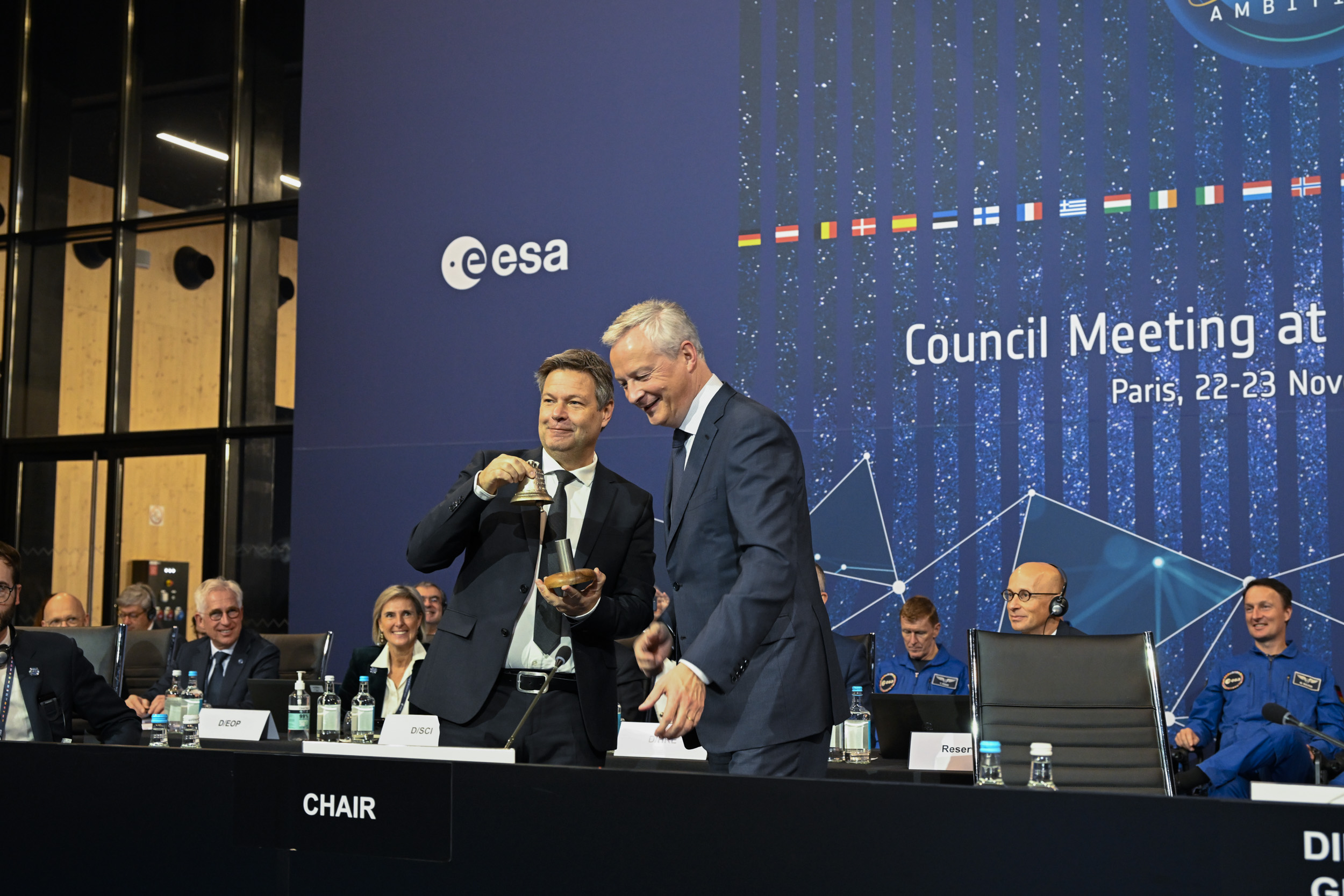

Dr Anna Christmann
Federal Government Coordinator of German Aerospace PolicyDr Christmann, what will the next three years be like under a German ESA presidency? What can Europe, what can the space sector expect from Germany?
: It is truly an honour for us that Germany was elected by the other Member States in Paris to chair the ESA Council Meeting at Ministerial Level and will hold this position until the next ESA Ministerial. We want to contribute to a strong ESA that harnesses the opportunities provided by space for the good of Europe and our planet. The contribution of space to climate protection, the strengthening of European sovereignty in strategically important space domains and the boost to innovation and cost efficiency achieved through the promotion of NewSpace approaches are important cornerstones for this. Europe also stands for sustainability, and we can use space to build on this as well. We want to continue to drive forward ESA's efforts to avoid and remove space debris. For this programme, it is important for us to exchange ideas closely with the other ESA Member States as well as with the EU Commission and the respective Presidencies of the EU Council. These efforts will culminate at the ESA Council Meeting at Ministerial Level 2025, which will be held Germany.
Mr Pelzer, how will the ESA Council Presidency mentioned by Ms Christmann be implemented by the German Space Agency at DLR?
: In addition to the normal activities within the framework of the ESA Programme Advisory Councils and the ESA Council, we now also have the task of shaping the direction of European spaceflight for the next few years together with our partners, ESA and the EU. With the Presidency, we represent ESA at the political level externally – for example in discussions with the European Commission. Internally, we represent the combined positions of the ESA Member States in order to shape ESA’s further development through transformation processes that conform to the vision of its Member States. The first task is to prepare the Space Summit in Seville in November. To this end, we will coordinate closely with Spain, which will hold the EU Presidency at that time, on the agenda of the next European Space Summit. We will also launch our own initiatives in the field of sustainable space and space debris together with ESA. So, there is a lot to do.
